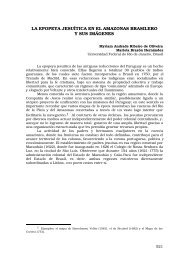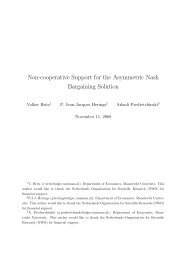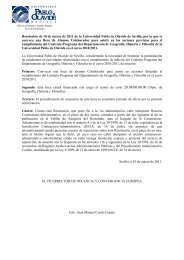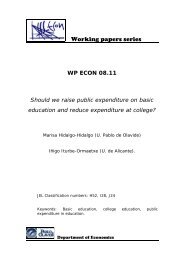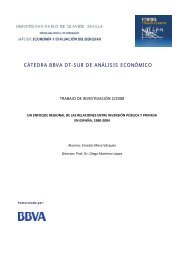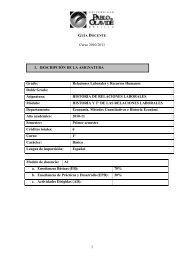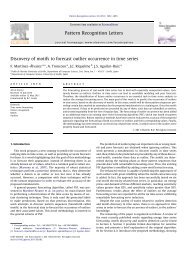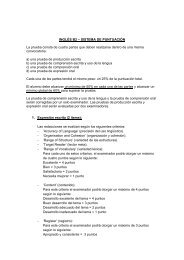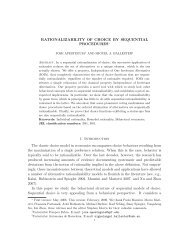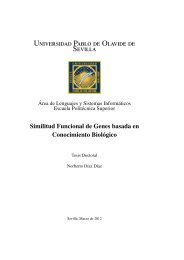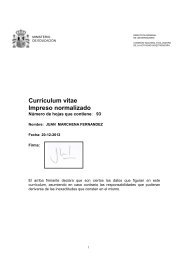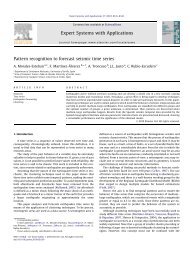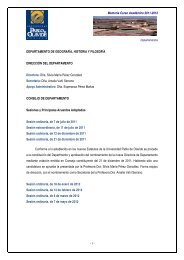Working papers series - Universidad Pablo de Olavide
Working papers series - Universidad Pablo de Olavide
Working papers series - Universidad Pablo de Olavide
Create successful ePaper yourself
Turn your PDF publications into a flip-book with our unique Google optimized e-Paper software.
offer specific business opportunities. This helped the family enormously in acquiring<br />
accurate information about the early lead industry during the 1840s and 1870s, before<br />
getting involved in it, in the context of the Peñarroya Company.<br />
IV<br />
Finally, the Rothschild network was roun<strong>de</strong>d off in Spain with the establishment<br />
of clientele recruited from the Spanish political class. They were the channel through<br />
which the family tried to politically influence the government and the rest of the state<br />
institutions to their advantage.<br />
The most common way to compensate, or to gain the favour of, these occasional<br />
co-operators, was to incorporate them into the boards of the companies un<strong>de</strong>r direct<br />
control of the family in Spain. It is the case of MZA, the railway company, where the<br />
phenomenon took striking dimensions. The board of this company boasted, from 1856<br />
to 1935, no less than thirteen Treasury Secretaries of State (Juan Alvarado, Manuel<br />
Bermú<strong>de</strong>z <strong>de</strong> Castro, José Manuel Collado, Venancio González, Alejandro Llorente,<br />
José Salamanca, José Canalejas, Amos Salvador, twice, and Juan Francisco Camacho,<br />
Pedro Salaverría and Gabino Bugallal, who were directors four times over); nine<br />
Secretaries of State for Public Works and the Economy (Albareda, Alejandro Pidal and<br />
the Count of Xiquena, twice); and three PMs (Alejandro Mon, Eduardo Dato, García<br />
Prieto and Bugallal). The stipend for these directors reached a minimum of ESP 10,000<br />
p/a, to be ad<strong>de</strong>d to ESP 500 monthly for board attendance. Despite this fact, directors<br />
were not able to get 5% product surplus, as the Articles established, due to the fact that<br />
they never reached the minimum income levels 34 .<br />
There were also directors coming from other companies, undoubtedly more<br />
interested in mutual economic interests than in the charging fees and stipends, as for<br />
instance the numerous group of directors of the bank of Spain, who were also essential<br />
in the Spanish Industrial and Merchant Company, the bank created to finance MZA.<br />
These virtually disappeared from MZA after the liquidation of this company in 1868,<br />
with the exception of some noteworthy cases, such as the Salaverría and Camacho ones,<br />
both Governors of the Bank of Spain, and that of Manuel María Álvarez, who was<br />
simultaneously director of both the Bank and MZA between 1889 and 1898, as well as<br />
that of García Prieto, who did the same between 1920 and 1920. At the Mortgage Bank<br />
13<br />
http://www.upo.es/econ



